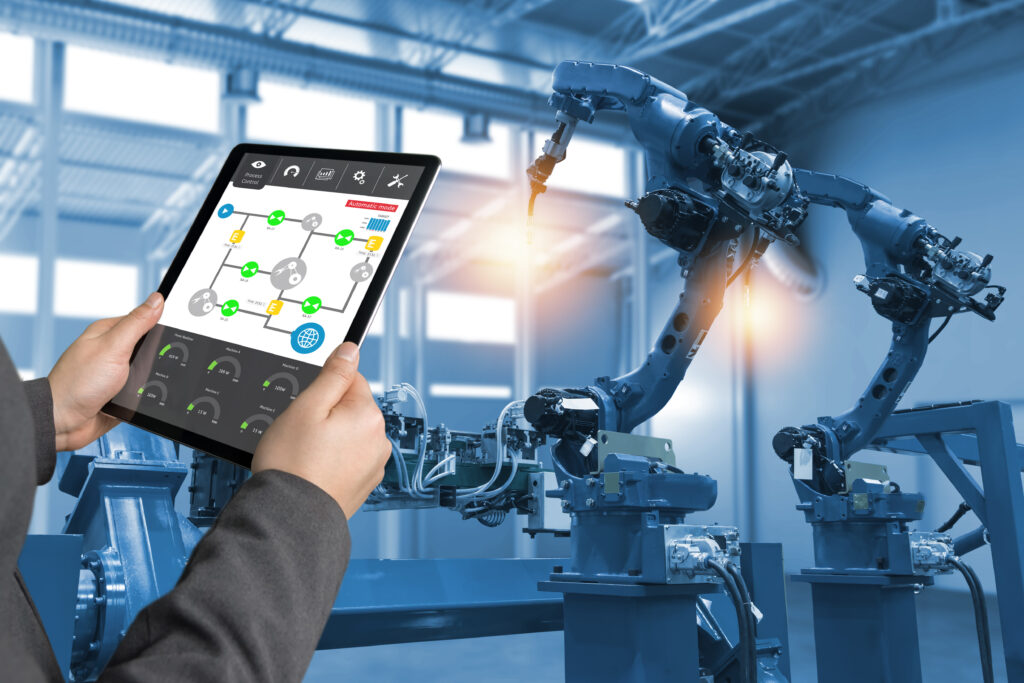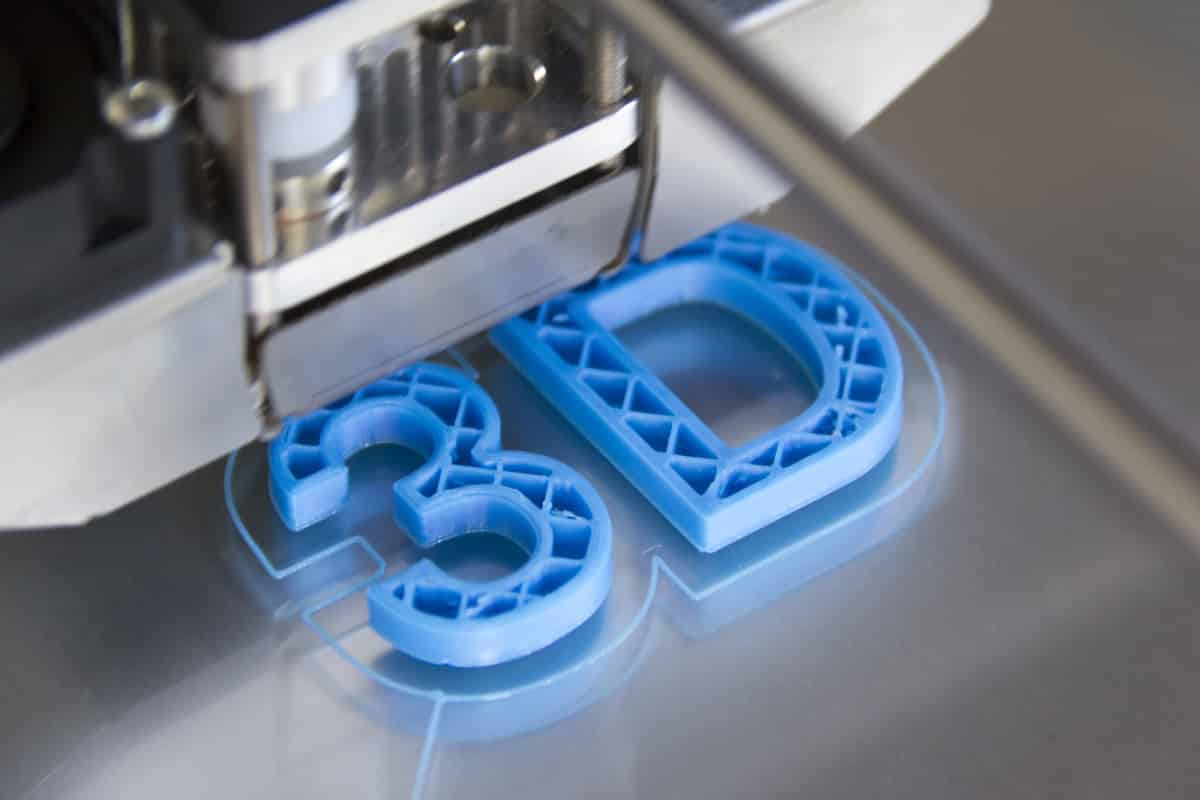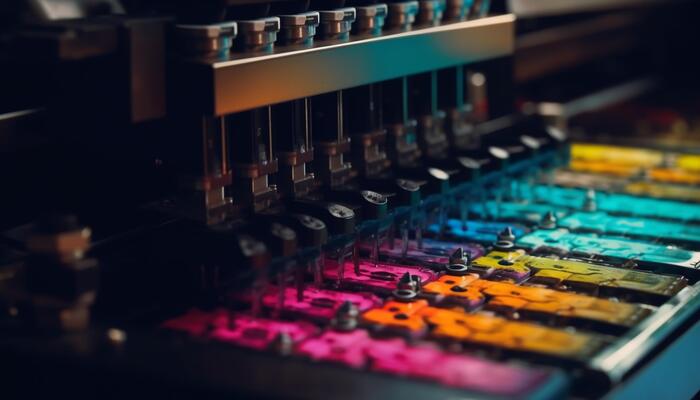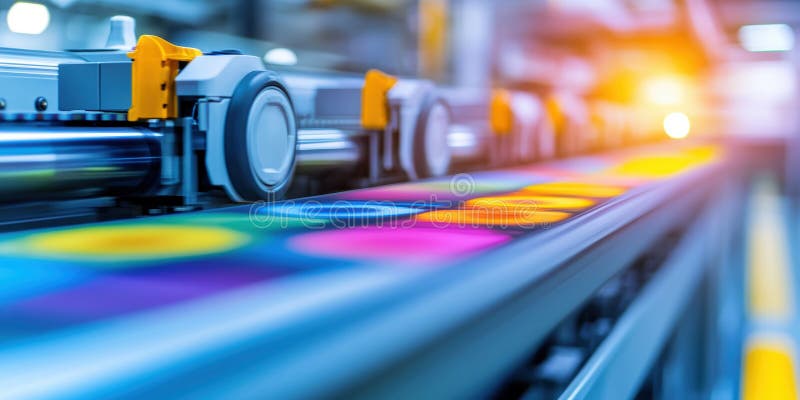In today’s rapidly evolving technological landscape, the integration of AI + IoT in printing marks a transformative shift in the manufacturing industry. This powerful combination has not only elevated efficiency but also revolutionized the way businesses operate. By utilizing IoT and artificial intelligence (AI), companies are now able to optimize their printing systems like never before.
The potential of AI + IoT in printing is enormous. Within the initial stages of adoption, businesses can already witness improvements in production quality, speed, and operational efficiency. As we delve deeper into this article, we will explore the extensive benefits and profound impacts these technologies bring to the printing sector.

Understanding AI and IoT
Artificial intelligence (AI) involves the simulation of human intelligence processes by machines, especially computer systems. AI is used to analyze data, make decisions, and automate workflows, providing efficiencies that are critical in the printing industry.
The Internet of Things (IoT), on the other hand, refers to the interconnected networks of devices capable of collecting and exchanging data. In printing, IoT connects printers and other operational devices to streamline processes and enhance productivity.
The Synergy of AI and IoT in Printing
Enhanced Operational Efficiency
By combining AI with IoT, printing operations achieve a higher degree of automation and reduced error rates. Streamlined operations result in a more efficient use of resources, reducing waste and lowering costs for businesses.
Advanced Predictive Maintenance
Another advantage of AI + IoT in printing is the capacity for predictive maintenance. These technologies help in foreseeing operational failures before they occur, thereby extending the lifespan of printing equipment and ensuring uninterrupted workflows.
Smart Decision Making
With AI, printing companies can make more informed decisions. By analyzing data collected through IoT networks, firms can optimize operations, tailor printing services, and enhance customer satisfaction.
Amplifying 3D Printing Capabilities
The influence of AI + IoT extends to 3D printing as well. These technologies enhance precision and speed, paving the way for more complex and reliable manufacturing solutions.
Challenges and Considerations
Security and Privacy Concerns
Despite numerous benefits, the integration of AI + IoT raises concerns over data privacy and security. Companies must invest in robust cybersecurity measures to protect sensitive information transmitted over connected devices.
Integration and Compatibility
Integrating AI and IoT with legacy printing systems can be challenging. Ensuring compatibility and seamless communication between old and new technologies is critical for unlocking the full potential of AI + IoT.
Cost Implications
While the initial investment in AI + IoT infrastructure may be significant, the long-term cost savings and efficiency gains typically outweigh these expenses. Businesses should conduct a thorough cost-benefit analysis before deploying these technologies.
The Future of Printing with AI and IoT
The future of the printing industry lies prominently in the adoption of AI + IoT. These transformative technologies are set to redefine manufacturing processes, improve quality, and dramatically increase the speed of production.
Incorporating IoT in operational systems aligns with the futuristic vision of digitally intelligent industries, confirming that AI + IoT in printing is not just a trend but a sustainable, scalable solution for the future.
Conclusion
The convergence of AI and IoT in the printing industry brings unprecedented opportunities and efficiencies. As these technologies continue to evolve, businesses in the printing sector must adapt to remain competitive and continue to innovate.

FAQs
How does AI improve printing efficiency?
AI enhances printing efficiency by automating decision-making processes and reducing the likelihood of errors, thus optimizing the workflow and resource management.
What role does IoT play in 3D printing?
IoT significantly improves 3D printing by enabling real-time monitoring and management of the printing process, resulting in faster, more precise, and efficient printing operations.
Is AI + IoT integration costly for small businesses?
While the initial setup might be costly, the long-term benefits in efficiency and reduced operational costs make AI + IoT integration a worthwhile investment for many small businesses.
This article contains affiliate links. We may earn a commission at no extra cost to you.






